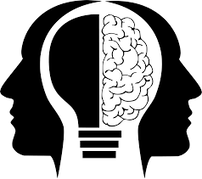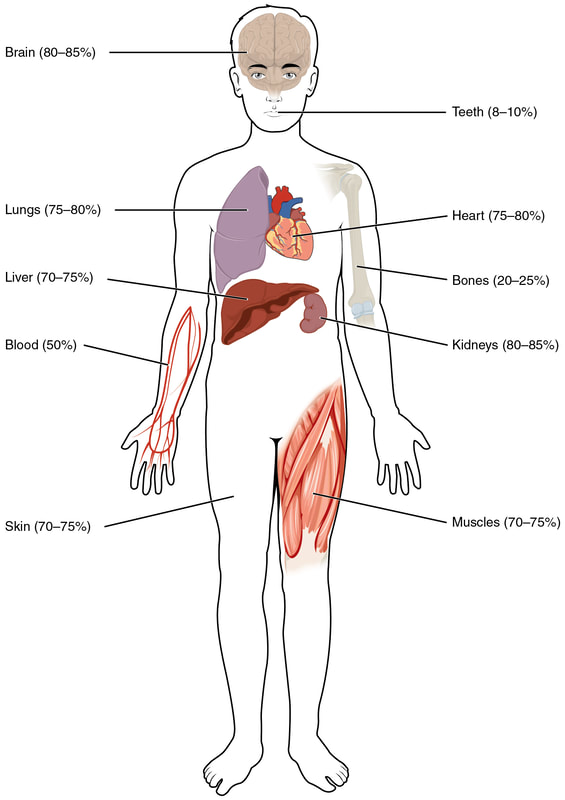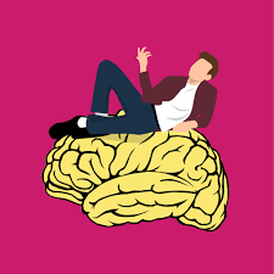
Here are some important videos about the science of Mindfulness:
Also check out the video to the right hand side for a simple introduction into the benefits and science of mindfulness. SCIENTIFIC RESEARCH PROVING MINDFULNESS WORKS IN SCHOOLS. I recently added this page to help schools have confidence in the work of mindfulness, so they can bring it to pupils of all ages. |
“When we can be centered in ourselves, even for brief periods of time in the face of the pull of the outer world, not having to look elsewhere for something to fill us up or make us happy, we can be at home wherever we find ourselves, at peace with things as they are, moment by moment.” ― Jon Kabat-Zinn |

The research into the effects of mindfulness and its impact on the brain is vast- It’s a big part of what’s bringing mindfulness into the mainstream. With science we can try to measure what mindfulness DOES, you can’t measure what it IS. That’s requires feeling, intuition and sensitivity. Measuring mindfulness is a science; practising it is an art.
When you feel it you know that Mindfulness and Meditation can have a positive impact on your life, because we have experienced it ourselves. But for the healthily skeptical western mindset we look to thorough scientific study to test theories. In the last three decades there has amassed volumes of information supporting the positive impact of Mindfulness. This page seeks to distill the basics for you.
“The intuitive mind is a sacred gift and the rational mind is a faithful servant. We have created a society that honours the servant and has forgotten the gift.”
Bob Samples
How to Adventure: the magic lies in being aware of the ways we mindlessly react to social and cultural cues. With mindfulness we can challenge the idea that the limits we assume are real must exist for us at all with only subtle shifts in our thinking, our language, and in our expectations, we can begin to change the in ingrained behaviours that sap energy, creativity, health, optimism, and vitality from our lives. Improved Vision, younger appearance, weight loss, increased longevity, and of course, increased creativity are some of the many results that are a consequence of these subtle changes, as studies are now showing. Meditation helps in many ways. We use it to build mindfulness of our bodily intuition, which has a natural wisdom to cultivate a balance of focus and relaxation which naturally leads to inner peace. This has a whole host of secondary positive effects on health, which have been scientifically measured and are listed here:
When you feel it you know that Mindfulness and Meditation can have a positive impact on your life, because we have experienced it ourselves. But for the healthily skeptical western mindset we look to thorough scientific study to test theories. In the last three decades there has amassed volumes of information supporting the positive impact of Mindfulness. This page seeks to distill the basics for you.
“The intuitive mind is a sacred gift and the rational mind is a faithful servant. We have created a society that honours the servant and has forgotten the gift.”
Bob Samples
How to Adventure: the magic lies in being aware of the ways we mindlessly react to social and cultural cues. With mindfulness we can challenge the idea that the limits we assume are real must exist for us at all with only subtle shifts in our thinking, our language, and in our expectations, we can begin to change the in ingrained behaviours that sap energy, creativity, health, optimism, and vitality from our lives. Improved Vision, younger appearance, weight loss, increased longevity, and of course, increased creativity are some of the many results that are a consequence of these subtle changes, as studies are now showing. Meditation helps in many ways. We use it to build mindfulness of our bodily intuition, which has a natural wisdom to cultivate a balance of focus and relaxation which naturally leads to inner peace. This has a whole host of secondary positive effects on health, which have been scientifically measured and are listed here:
|
Brain health and adaptation (Neuroplasticity ): is the scientifically proven concept that the brain is not a static instrument, which is formed from childhood, but that it is actually constantly changing and forming from the present moment behaviours, actions, thoughts and emotions. We can actually change the physiology of our brain by how we use our focus and attention. Studies have shown that we can increase the size and connection with parts of the brain associated with learning and memory and we can shrink those associated with stress and anxiety,
One of the most well-known studies to demonstrate this was led by Sara Lazar, from Harvard University, in 2000. Richard Davidson, a neuroscientist at the University of Wisconsin, has led experiments in cooperation with the Dalai Lama on effects of meditation on the brain. Results suggest that long-term, or short-term practice of meditation results in various levels of activity and even size of brain regions associated with such characteristics as attention, anxiety, depression, fear, anger and the ability of the body to heal itself. (Reference) |
|
|
Stress and Anxiety Reduction: According to leading neuroscientists as you continue to meditate your brain can show ACTUAL PHYSICAL CHANGE, even though you’re not aware of it RE-SHAPING itself. Hundreds of studies have found that mindfulness practice had a positive and substantial effect on factors of well-being, including negative moods, stress and anxiety. Research on mindfulness practice in the workplace found a 36% decrease in stress levels. Mindfulness has also been linked to reduced absence from work. (Reference
|
|
Focus and Creativity: Research shows that as little as 11 hours of meditation can have a 50% increase in FOCUS and SELF-CONTROL. Meditation can promote ‘DIVERGENT THINKING’ a type of thinking that allows new ideas to be generated. Mindfulness can affect the FILTERING out of other mental processes during creative tasks, allowing for greater clarity of focus. Research has shown mindfulness practice can enable us to respond with greater flexibility to situations where we might otherwise be confused, numbed or blinded by past experiences; reducing the ‘cognitive rigidity’ which can cause us to overlook novel and adaptive ways to respond. Researchers have found that, in comparison with the people who didn’t meditate, ‘those practised meditation STAYED ON TASKS LONGER and made FEWER SWITCHES’. (Reference).
Depression Prevention: Over 40 studies have found that mindfulness based therapies are highly effective in alleviating depression and anxiety over a wide range of populations. They found that meditation had a significant effect for those with everyday anxiety and mood problems as well as those clinically diagnosed . (Reference) Research has found that mindfulness practitioners were around 3 times more likely to avoid depression the following year after starting their practice (Reference). |
|
Cognitive Skills Cultivation: Research has found that mindfulness practice can lead to significant improvements in critical cognitive skills after only 4-5 days of training for 20 minutes per day. In particular, improvements were found regarding sustained attention, visual and spatial processing and working memory; the type of memory associated with immediate everyday processing and reasoning. This study is one of the first to show how even small amounts of brief mindfulness training and practice can lead to significant improvements in cognitive skills. (Reference)
Immunity Improvements: Researchers measured electrical activity in the brain before and immediately after 8 weeks of mindfulness-based meditation practice. After these 8 weeks, all subjects were treated with influenza vaccine. Participants who practised mindfulness displayed increased activity in parts of the left- frontal brain; the area of the brain associated with positive emotions. Crucially, they also produced significantly more antibodies than the control group. Results highlighting the link between mind and physical health found that a greater increase in left-sided brain activation predicted the degree of the increase in antibodies from the vaccine. (Reference) Preliminary research has even shown mindfulness practice can have a powerful effect on psoriasis; a skin disease that has a strong relationship with psychological stress. The study found that the meditators’ skin cleared around 4 times faster than the non-meditators. (Reference) Compassion and Emotional Intelligence: A large amount of research illustrates the effects of meditation has on our interpersonal relationships. Researchers recently found that people who practised mindfulness based meditation over just 8 weeks displayed a 55% increase in compassionate behaviours in real life settings compared to those who did not. (Reference) |
|
Relationships and Love: Mindfulness can help us express our true selves across a range of social situations, and also increases empathy. What’s more, increased self-awareness and non-judgemental acceptance associated with mindfulness leads to the better communication of feelings and also reduced social anxiety. (Reference) Training the mind makes us less judgemental and less opinionated. At the very least, it makes us more aware of our tendency to judge, to criticize, to be self-righteous or opinionated, and thereby gives us the opportunity to let go of these habits. Researchers have also found mindfulness practice to positively affect romantic relationships; often leading to greater relationship satisfaction and a positive ability to respond constructively to relationship stress (Reference).
Pain Management: Research observing the effects of mindfulness practice on chronic pain management suggests positive physical and psychological improvements, as well as reductions in depression and pain-related grief. (Reference) Whatever the type of pain, it’s useful to remember that as a general rule the more aware you are of pain, and the more welcoming you are towards it, the easier it is to manage and the more likely you are to understand it. It sounds counter-intuitive to welcome pain in this way, but you’ll find it much easier to work with it if you do. |
Sleeping Soundly: Research assessing the effects of mindfulness techniques on sleep, has found a decrease in the time it took practitioners to fall asleep, as well as improvements in total sleep time and sleep efficiency. (Reference) When you’re lying awake at night, trying to fall asleep, notice if you ‘react’, get frustrated, worry or become downhearted? Or do you ‘respond’ with a sense of acceptance? Your familiarity with mindfulness and your ability to step back and observe the thoughts and emotions a little more clearly will be critical in turning a ‘reaction’ in to a ‘response’. This is exactly what you are training your mind to do when you sit and meditate.
Addictions and Disorders: Eating, Smoking and others: Mindfulness practice has led to a significant and greater reduction in smoking behaviours compared to a standard smoking reduction treatment program (Reference) New research suggests that just 5 hours of mindfulness meditation practice led to a 60% reduction in smoking. What’s more, changes in brain activity associated with self-control were also observed. (Reference). Research investigating the relationship between mindfulness practice and binge eating in individuals without clinically diagnosed eating disorders found a decline in binge eating, anxiety and depressive symptoms and an increase in self-acceptance following mindfulness practise. (Reference)
Healthy Mind, Healthy Body, Healthy Heart: Why differentiate between body and mind? The two are inseparable. When the mind is still, the body is still, when the mind is at ease, the body is at ease. Meditation is known to evoke the ‘relaxation response’ whereby blood pressure, heart rate, breathing rate and oxygen consumption all reduce. It’s the opposite of the stress response, which is why it has such wide ranging potential to benefit physical and mental health. Even in the early stages of research, it’s incredibly promising to see that mindfulness practice might be effective in helping prevent the number one global cause of death (Reference)
Other references:
Headspace and the science of Meditation
Research/Evidence on Mindfulness for Young People in general
Mindfulness in Schools
Lots of Positive Psychology Research
Addictions and Disorders: Eating, Smoking and others: Mindfulness practice has led to a significant and greater reduction in smoking behaviours compared to a standard smoking reduction treatment program (Reference) New research suggests that just 5 hours of mindfulness meditation practice led to a 60% reduction in smoking. What’s more, changes in brain activity associated with self-control were also observed. (Reference). Research investigating the relationship between mindfulness practice and binge eating in individuals without clinically diagnosed eating disorders found a decline in binge eating, anxiety and depressive symptoms and an increase in self-acceptance following mindfulness practise. (Reference)
Healthy Mind, Healthy Body, Healthy Heart: Why differentiate between body and mind? The two are inseparable. When the mind is still, the body is still, when the mind is at ease, the body is at ease. Meditation is known to evoke the ‘relaxation response’ whereby blood pressure, heart rate, breathing rate and oxygen consumption all reduce. It’s the opposite of the stress response, which is why it has such wide ranging potential to benefit physical and mental health. Even in the early stages of research, it’s incredibly promising to see that mindfulness practice might be effective in helping prevent the number one global cause of death (Reference)
Other references:
Headspace and the science of Meditation
Research/Evidence on Mindfulness for Young People in general
Mindfulness in Schools
Lots of Positive Psychology Research
Proudly powered by Weebly





